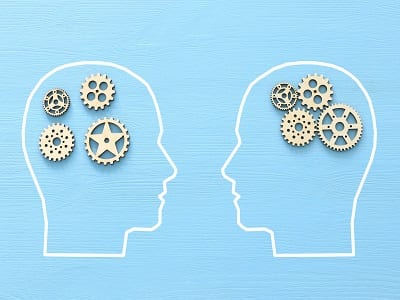Compulsive behaviors are practiced repeatedly, even when they seem irrational, fail to deliver pleasure, and may result in negative consequences. An individual is driven to continue practicing a compulsive behavior even when they wish to stop.
While any behavior has the potential to become compulsive, the most commonly identified compulsive behaviors include Obsessive Compulsive Disorder (OCD), PICA, trichotillomania, overeating, hoarding, shopping, gambling, sex, skin picking, counting, and hand washing.
Compulsive Behaviors
All people have certain thoughts, ideas, or routines that they frequently repeat but that are not considered compulsive. According to WebMD, the following symptoms may indicate the presence of a compulsive behavior.
The behavior:
- Requires one hour or more out of the day
- Can’t be easily controlled
- Brings no enjoyment or pleasure
- Impacts personal or professional lifestyle
Researchers theorize that compulsive behavior disorders stem from either the natural chemistry of the body and brain, a person’s genetics, or is learned by observing fears and behaviors of family members.
Obsessive-Compulsive Disorder (OCD)
OCD is a chronic disorder, characterized by uncontrollable, reoccurring obsessive thoughts or compulsive behaviors that are persistently repeated. Either behavior—obsessive or compulsive—can occur on its own, or they may occur together, as when a pattern of unwanted thoughts and fears triggers repetitive behaviors.
Signs or symptoms of OCD may include excessive cleanliness, extreme safety concerns, obsessing over money or material possessions, repetition, and extreme fear of unwanted thoughts. Skin picking, counting, hand washing and similar behaviors may be symptoms of OCD.
Many experts believe OCD is an underlying cause for PICA, trichotillomania, and other compulsive behaviors.
Trichotillomania
Trichotillomania is the compulsive pulling of hair from the scalp, eyebrows, eyelashes, or other areas of the body. The disorder often results in bald patches, which the sufferer tries to hide.
In addition to noticeable hair loss, symptoms of trichotillomania may include an increasing sense of anxiety before pulling coupled with a sense of relief after pulling, playing with, biting, chewing, or eating pulled-out hair and pulling hair from pets, dolls, clothes, or blankets.
Pica
Pica is the compulsive eating of non-food substances like dirt, paint, stones, or other non-nutritional items. The disorder is most common in children, mentally and developmentally disabled people of any age and in institutionalized populations.
Pica can be a life-threatening disorder and can lead to anemia, intestinal blockages, infections, kidney or liver damage, and malnutrition. Ingesting toxic substances such as lead can lead to poisoning, brain damage, and the potential for permanent learning disabilities.
Overeating
Compulsive overeating may be characterized by night eating, impulsive overeating, continuing to eat even when full, hiding food, or eating food from the garbage. Overeating may occur on its own, or it may be a symptom of bulimia nervosa or binge eating disorder. It is often a behavior that started in childhood and is frequently linked to a distorted body image.
Overeating and other compulsive behaviors are coping mechanisms often used to avoid underlying emotional issues like depression, anxiety, trauma-related distress, or other negative feelings. When compulsive behaviors negatively impact an individual’s quality of life, it is vital to seek professional help.
Turning Point of Tampa has been offering Licensed Residential Treatment for Addiction, Eating Disorders and Dual Diagnosis in Tampa since 1987.



